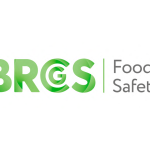
Women in Agriculture -By Cherisse Burger
April 6, 2023
Staying Ahead of the Curve: Adapting to the Changes in BRCGS Food Safety Standard Issue 9
June 21, 2023The Importance of Unannounced Audits
-By Juane Jooste
In today’s rapidly changing business landscape, companies must maintain a competitive edge while upholding strict regulations and standards. Unannounced audits are becoming an increasingly important tool for businesses to ensure compliance and maintain their reputation. These audits catch businesses off-guard, ensuring continuous adherence to standards and preventing complacency. As unannounced audits become more prevalent across various industries, businesses must be prepared to meet these challenges head-on.
Here are some practical ways to prepare for the unannounced audits:
Understand the Standards and Regulations:
Understanding the standards and regulations that packhouses must comply with is crucial to maintaining compliance and ensuring that their produce meets market requirements. In South Africa, the GlobalG.A.P and BRCGS are widely used, and packhouses must adhere to them. By understanding these standards and regulations, help businesses develop and implement effective quality management systems., reducing the risk of non-compliance during an audit. Furthermore, adhering to these standards can also help businesses maintain a competitive advantage in the market and maintain the trust of their customers. It is essential for facility to stay up to date with any changes in regulations and standards to ensure continuous compliance.
Conduct regular Internal Audits:
Internal audits are an essential part of preparing for third-party audits. Conducting internal audits at regular intervals can help identify non-conformities that may need correction before an external audit. Regular audits also help to maintain compliance and ensure that standard operating procedures are being followed.
Keep documentation up to date:
During an audit, an auditor will need to review documentation such as standard operating procedures, training records, and other relevant documentation. Ensuring that all documentation is up to date, accurate and easily accessible is crucial.
Employee Training:
Employee training is crucial for compliance. The establishment employees should receive regular training on standards that apply to their job responsibilities. In addition, they should be trained on company-specific policies and procedures. Regular training ensures that employees remain up to date with any changes in the industry.
Ensure Hygiene and Sanitation Standards:
Hygiene and sanitation standards are critical to ensuring food safety. A clean facility environment, including production lines, packaging areas, and storage facilities, can reduce the risk of contamination. It is essential to develop and implement a sanitation program to ensure compliance and maintaining it throughout the year. Culture of clean as you go should be implemented.
Develop an Audit Response Team:
Developing an audit response team is crucial to responding to an auditor’s questions and addressing non-conformities identified during the audit. The team should consist of members from different areas of the facility, and they should be trained on their responsibilities during an audit.
Conduct Mock Recalls and Traceability:
Conducting mock audits is an excellent way to assess the effectiveness of your preparation. These audits should be conducted by an internal auditor who is not familiar with the specific area being audited. The findings from the mock audit should be used to make necessary changes to your audit preparation plan.
Continuous Improvement:
Continuous improvement is a critical aspect of maintaining compliance and ensuring that your establishments is always prepared for an audit. Use the findings from the audit to identify areas where improvements can be made and make the necessary changes.
In conclusion, preparing for unannounced third-party audits is critical for any certification site in in South Africa. Compliance with regulations and standards is essential for ensuring the safety and quality of produce, maintaining business operations, and preserving the reputation of the industry. By understanding, the relevant regulations and standards, conducting regular internal audits, keeping documentation up to date, providing employee training, ensuring hygiene and sanitation standards, implementing a pest control program, developing an audit response team, conducting mock audits, and continuously improving, can prepare for unannounced third-party audits and maintain compliance.
For any queries, please contact Juane Jooste
qms@skyvines.co.za




